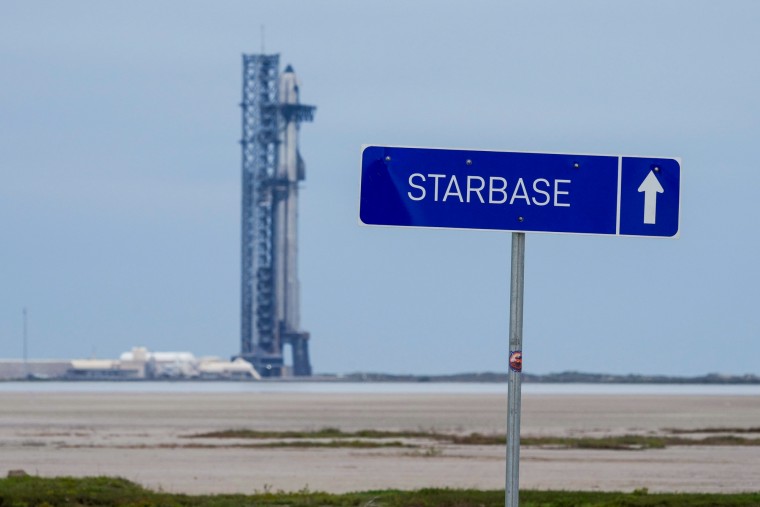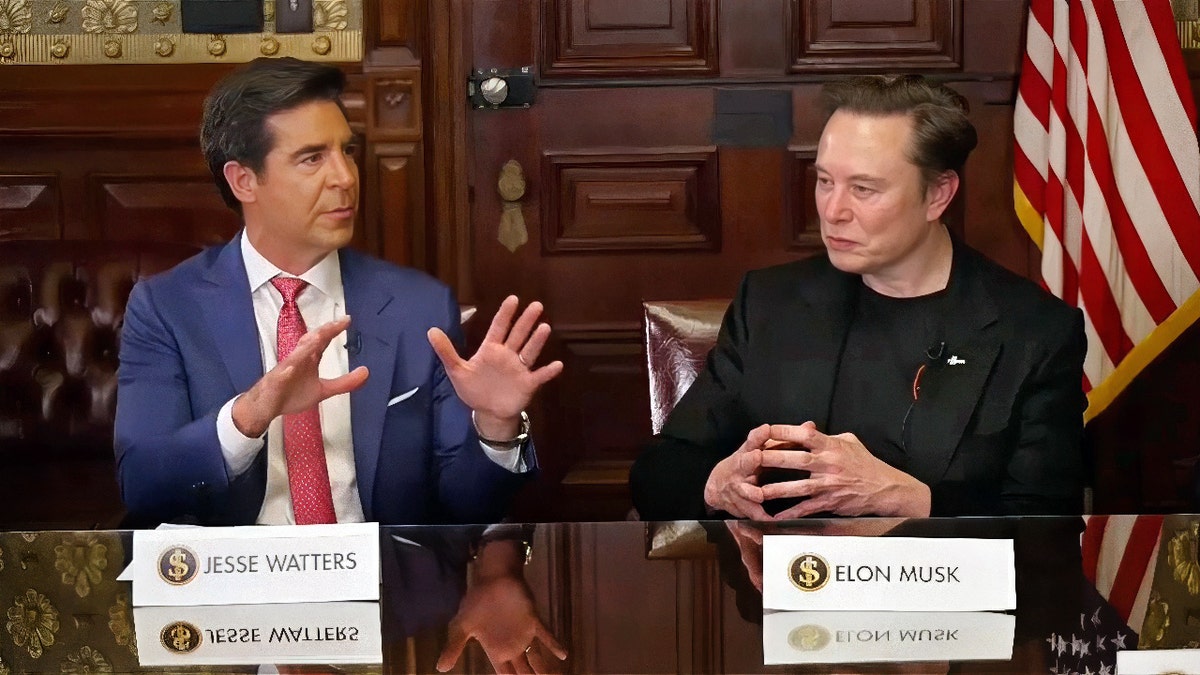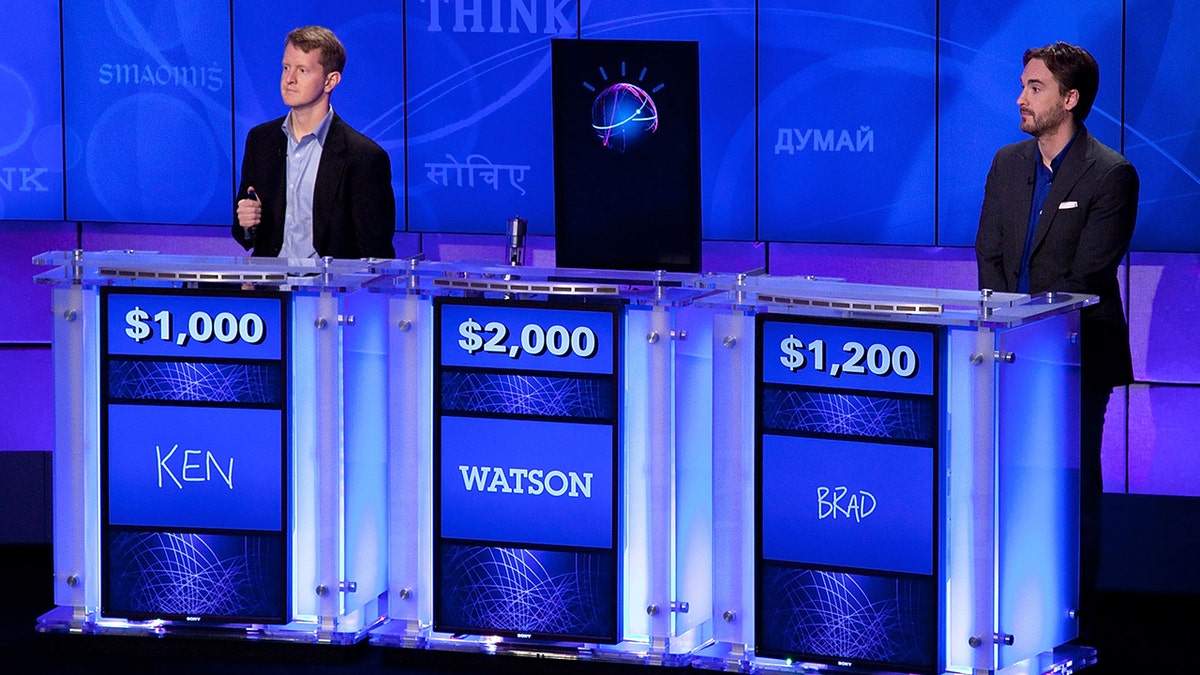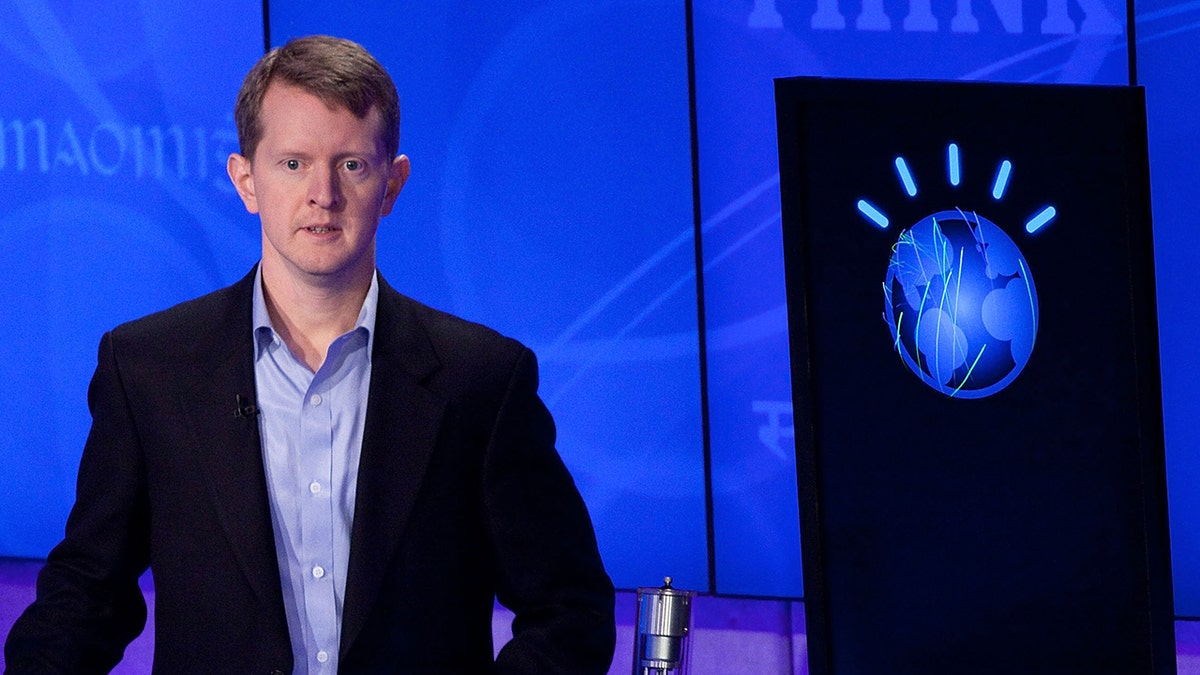
Category: Uncategorized
-

Elon Musk: This is character assassination
 DOGE leader Elon Musk responds to harsh rhetoric against him on ‘My View with Lara Trump.’
DOGE leader Elon Musk responds to harsh rhetoric against him on ‘My View with Lara Trump.’ -

Google AI Mode gets one-tap search, smooth iOS glow

Besides the widget shortcut, Google is making AI Mode faster to access with one-tap search on Android and iOS.
Previously, launching AI Mode from the shortcut beneath the Search bar in the Google app or widget would bring you to an introductory homepage. You’d then have to touch the “Ask AI Mode” field before you could start typing.
Opening AI Mode now immediately takes you to the input box with the keyboard open. The header just shows the ‘G’ logo (and close button), while the suggested queries carousel disappears after you enter text for a minimalist look.
With the previous homepage no longer available, you cannot quickly access conversation history. Google tells us to soon expect direct access from the text field.
Old vs. new
One-tap AI Mode access is live on both Google for Android and iOS. On the latter platform, Google has introduced a very slick animation. Tapping the AI Mode button will expand the usual Search field to encompass your entire screen as the keyboard pops up.
As this occurs, there’s a four-color glow around the expanding perimeter that looks very nice. It fades out just as everything settles, while closing AI Mode also results in a visual effect. There’s no equivalent animation on Android right now, but there are other colorful touches.
This follows Google dropping the Labs waitlist for AI Mode yesterday, while redesigning the desktop UI with quick access to history via a side panel and adding more visual elements for places and products. Google Lens search on mobile was introduced last month.
FTC: We use income earning auto affiliate links. More.
-

South Texans set a course for Musk’s Starbase
Voters will also be choosing the first mayor of Starbase and two city commissioners. The candidates for all three positions are employees of SpaceX and are running unopposed.
As of Tuesday, 181 people had already cast early ballots, according to county election records, including the candidates for mayor and city commissioners. Musk, who is eligible to vote in this Cameron County special election, has not yet shown up in early voting data.
It’s not clear why Musk or SpaceX want to turn the area into their own city. The company did not respond to a request for comment.

SpaceX’s mega rocket Starship is prepared for a test flight from Starbase in Boca Chica, Texas, on Jan. 12.Eric Gay / AP file Remi Garza, head of elections for Cameron County, said counties are usually more limited in their authority over cities.
“They don’t have the ability to sort of control growth or set standards the same way the municipality could, where they could adopt city codes, building codes and things like that,” he said, adding that cities can exert greater influence over planning and development.
Musk first publicly discussed the idea of a city named Starbase in 2021. The coastal spot is where SpaceX builds its boosters and engines and launches its huge Starship rocket on test flights.

A visitor photographs a large bust of Elon Musk near SpaceX’s Starbase in Boca Chica, Texas, on March 5.Eric Gay / AP file Having greater municipal control could ease some of the red tape around those activities. Earlier this week, however, Texas lawmakers voted against a bill that would have given SpaceX great control over public beach access near its launch facility.
Normally, SpaceX must obtain permission from authorities in Cameron County to close a highway and shut down public access to Boca Chica Beach and Boca Chica State Park to keep people safe during rocket launches.
The frequent closures have contributed to legal complaints against SpaceX, and have drawn protests from local residents and activists, including the Carrizo Comecrudo Tribe of Texas, the South Texas Environmental Justice Network and Border Workers United, as reported by CNBC.
-

Nvidia’s CEO says China is not far behind the U.S. in AI capabilities
China is not significantly behind the U.S. when developing AI hardware and software, said Jensen Huang, chief executive of Nvidia, at the Hill and Valley Forum. While Chinese companies have made remarkable progress with AI services and software, Huang’s comments mainly refer to Chinese AI hardware. Coincidentally, Huawei has started to ship its latest AI system, which is largely deemed competitive with Nvidia’s GB200 NVL72, reports Financial Times. However, there is a catch.
“China is not behind anybody, China is right behind us, we are very, very close,” said Huang at the sidelines of the Hill and Valley Forum, where business leaders and lawmakers met to discuss technology and national security, according to Bloomberg Podcasts.
Regarding hardware, China has numerous companies developing AI chips that are more or less competitive against Nvidia’s AI hardware. Huawei is ahead of everyone else as its AI strategy spans from its Ascend 900-series AI accelerators to servers to rack-scale solutions for cloud data centers. Recently, the company announced CloudMatrix 384, which packs 384 dual-chiplet HiSilicon Ascend 910C interconnected using a fully optical mesh network. So far, Huawei has sold over 10 CloudMatrix 384 systems to Chinese customers, which signals that some would like to try domestic alternatives to restricted Nvidia hardware.
“There is no question that Huawei is one of the most formidable technology companies in the world, and they are incredible in computing, they are incredible in networking technology, and in software capabilities, all of the essential capabilities to advance AI. And they have they’ve made enormous progress in the last several years,” said Huang.
This Huawei CloudMatrix 384 system spans 16 racks: 12 compute racks each housing 32 Ascend 910C accelerators, plus four dedicated racks managing optical connectivity via 6,912 optical transceivers at 800G LPO speeds. CloudMatrix 384 achieves roughly 300 PFLOPs dense BF16 compute, nearly double Nvidia’s GB200 NVL72, with 2.1 times higher memory bandwidth and over 3.6 times greater HBM capacity using HBM2E. CM384’s optical interconnects provide substantial bandwidth advantages, including 2.1 times better scale-up and 5.3 times better scale-out capabilities. However, it falls short of Nvidia’s GB200 NVL72 efficiency, consuming 2.3 times more power per FLOP, 1.8 times more per TB/s memory bandwidth, and 1.1 times more per TB of HBM memory.
Shipping 10 CM384 systems is hardly a big deal per se, especially considering that Chinese technology firms like Alibaba, ByteDance, and Tencent reportedly invested $16 billion in Nvidia’s H20 HGX GPUs in the first quarter, anticipating U.S. export restrictions called the AI Diffusion Rule set to begin in mid-May.
Nonetheless, 10 systems may be the start. Huawei reportedly has about a million HiSilicon Ascend 910C, enough for 2,600 CloudMatrix 384 systems. Then again, 2,600 CM384 clusters can deliver about 780 ExaFLOPS of dense BF16 compute. One needs around 4,300 of Nvidia’s GB200 NVL72 machines (or around 312,000 B200 AI GPUs) to get similar performance. Analyst Ming-Chi Kuo estimated that shipments of GB200 NVL72 racks alone in 2025 could reach roughly 25,000 – 35,000 racks, but in addition, the company will also ship GB300 NVL72 racks as well as B100, B200, and B300 AI GPUs.
This means that Nvidia alone will supply orders of magnitude more AI compute performance than Huawei this year. However, Huawei has technologies that may rival those of the American company.
Follow Tom’s Hardware on Google News to get our up-to-date news, analysis, and reviews in your feeds. Make sure to click the Follow button.
-

Spotify’s Daniel Ek has AI plans to grow podcasting reach
Right now, English speakers are spoiled for podcast choice on Spotify, with millions to choose from. But if CEO Daniel Ek’s dream comes true, that number could multiply exponentially.
You might want to clear your schedule.
Ek imagines a world where all 7 million of the platform’s podcasts — now available in languages ranging from Arabic to Albanian — could be efficiently and affordably translated to English, with the help of AI.
“Imagine if you’re a creator and you’re the world expert at something … but you happen to be Indonesian,” Ek explained. “Today, there’s a language barrier and it will be very hard if you don’t know English to be able to get to a world stage. But with AI, it might be possible in the future where you speak in your native language, and the AI will understand it and will actually real-time translate …
“What will that do for creativity? For knowledge sharing? For entertainment? I think we’re in the very early innings of figuring that out.”
Daniel Ek told NYNext that he has made Spotify a place where “we want to enable more voices, more artistic expression, more conversations.” Emmy Park for NY Post Ek, who founded Spotify in 2006 and steered it through the 2018 IPO, sat down with me to discuss how he’s positioning the company amid AI breakthroughs and antitrust battles.
With 678 million users across 184 countries (268 million of whom pay for the service), Spotify is the largest music and podcast streaming platform. Ek believes that the medium will grow even more in the coming year — both in terms of audience and content creators.
“Five years ago, when we started getting into podcasting in a big way, about 20% of Americans knew what podcasting was,” Ek told me. “Today, about 50% engage with podcasts sometimes. But that means there’s still 50% who don’t.”
Spotify placed its US headquarters in New York City in part because it is a cultural hub. Emmy Park for NY Post Ek expects “more voices from around the world” to emerge as well.
To that end, Spotify has leaned into video — both with podcasting and music. “We also now started having full-length music videos,” he said. “And more and more of the artists are both playing around with the shorter form video format we have and now uploading more and music videos onto the platform too.”
Tuesday’s earnings report suggests Spotify is also adding users at a steady clip, with five million new subscribers last quarter alone.
Funnily enough, Ek’s globalization dream is inspired by how very segmented online culture is.
Since its inception nearly two decades ago, Spotify has gained dominance in both music and podcast streaming Emmy Park for NY Post “What’s really cool about the internet is it also is a place for niches,” he said. But a platform like Spotify “enables something that may seem quite small to actually be very, very big on a global basis.
‘So one of my favorite examples in the US, it’s a very big thing, country music, right? But what is really cool is that … people in Europe are now listening to country music. And people in Southeast Asia are listening to it as well. What may seem quintessentially American is now becoming a global phenomenon.”
Connectivity has always been his MO. Spotify was born after peer-to-peer music-sharing sites like Napster ran afoul of copyright law, as a legal way to instantly stream music while compensating artists.
Daniel Ek with NYNext’s Lydia Moynihan at Spotify HQ. Emmy Park for NY Post Over the years, of course, there has been criticism over how much Spotify pays artists per stream. But there is no overselling how important — even necessary — the platform is in terms of reach and raw exposure.
“We are … the single biggest contributor to the music industry,” Ek said. “And in podcasting, this quarter alone paid out over $100 million back to creators.”
That includes the man who sits at the top of the platform’s charts: Joe Rogan who has a $250 million non-exclusive deal with Spotify. When other tech giants, including YouTube, censored Rogan for including guests who questioned Covid’s origins and vaccine efficacy, Spotify stood by him.
Providing Joe Rogan, and others like him, a platform to raise questions is incredibly important to Ek. YouTube / PowerfulJRE “It was actually kind of obvious… this wasn’t as black and white as some people try to make the issue,” Ek told me. “The whole debate in America was, there’s one answer and this is the science … but actually, what I knew from my home country was that what Sweden believed was the right thing was totally different.”
Providing Rogan, and others like him, a platform to raise questions is incredibly important to Ek.
“We want Spotify to be the place for all voices,” he said — whether that’s podcasters or “punk music in Myanmar … revolting against the regime.”

This story is part of NYNext, an indispensable insider insight into the innovations, moonshots and political chess moves that matter most to NYC’s power players (and those who aspire to be).
He includes himself in that ideal. Ek has spent time facing down tech giants — namely Apple and Google — who he sees as trying to undermine fair competition.
“In the case of Apple, they, frankly, have decided to take an approach where they’re… insisting on pretty draconian rules [for app-store vendors],” Ek said, referring to everything from Apple requiring the company to provide timing for its annual Spotify Wrapped to imposing an approval process for software updates.
“They also operate Apple music, which is a competitor of ours [yet] we have to share our plans to them beforehand.”
Ek may finally see courts and regulators create the “level playing field” he has pushed for since founding Spotify. On Wednesday, a judge ruled that Apple had violated an antitrust order in the company’s longstanding legal battle with Fortnite maker Epic Games.
And while he sees blue skies ahead, he admits there is room to grow in his quest for “the perfect Spotify.”
Speaking of the platform’s ever-evolving algorithm, he said, “We still have some ways to go before we’re at that point where we can just serve you that magical thing that you didn’t even know that you liked — better than you can do yourself.”
Send NYNext a tip: nynextlydia@nypost.com
-

Elon Musk looks back on 100 days of DOGE and more top headlines

Good morning and welcome to Fox News’ morning newsletter, Fox News First. And here’s what you need to know to start your day …
TOP 3
1. Elon Musk looks back on 100 days of DOGE
2. Graduates go wild for Trump’s commencement pledge
3. Steve Doocy announces new coast-to-coast hosting role
MAJOR HEADLINES
MIXED ‘SIGNAL’ – Vance breaks down why Trump official was removed then got ‘promotion’ just hours later. Continue reading …
‘OUT OF CONTROL’ – Trump issues scathing post suggesting expulsion of Dems for ‘REAL crimes.’ Continue reading …
READ ID REJECTION – Americans forced to obtain new required license are putting their foot down. Continue reading …
‘HAULING THESE PEOPLE’ – Troopers suspected ‘Maryland man’ of human smuggling during traffic stop. Continue reading …
COLD COMFORT – Parents outraged after seeing how son’s killer is living: ‘How is this justice?’ Continue reading …
—
POLITICS
‘FIGHTING THE FAKE NEWS’ – DHS debunks media claims of immigration enforcement at elementary schools. Continue reading …
‘ILLEGITIMATE IMPEDIMENTS’ – DOJ takes aim at four blue states over their climate laws. Continue reading …
‘CELEBRATING OUR VICTORIES’ – Trump designates days to commemorate the end of both World Wars. Continue reading …
‘UNACHIEVABLE’ – Congress takes on California’s scheduled gas car ban. Continue reading …

MEDIA
‘THAT SCARES ME’ – Jewish Democrat sounds alarm as party defends deportation targets with antisemitic views. Continue reading …
THE WRONG SIDE – Homan dares Dems to keep supporting deported migrant. Continue reading …
‘FALSE NARRATIVE’ – Bill Belichick dispute with CBS latest editing controversy the network faces. Continue reading …
NOT ‘HEROES’ BUT ‘COWARDS’ – Blue state parents unload on liberal lawmakers over gender bill, triggering changes. Continue reading …
OPINION
SEC MARCO RUBIO – Alien Enemies Act exists to protect Americans, defend against Tren de Aragua and others. Continue reading …
KELLYANNE CONWAY – 25 ridiculous mistakes Democrats have made (so far) in 2025. Continue reading …
—
IN OTHER NEWS
ROYAL RUMBLE – Prince William can’t strip sister-in-law’s royal title, but using it may come at a price. Continue reading …
CRITICAL CONDITION – Pirates fan who flipped over wall identified as former college football player. Continue reading …
DIGITAL NEWS QUIZ – Who’s accused of helping an illegal immigrant evade ICE? How did Katy Perry roar? Take the quiz here …
‘PANDEMIC IN PLAIN SIGHT’ – A common killer bug is endangering Americans, doctors warn. Continue reading …
TAKES HIM DOWN – Barefoot man wrangles large alligator on Florida highway. See video …
WATCH
BRETT VELICOVICH – Hegseth orders sweeping Army transformation as China threat looms ‘behind-the-scenes.’ See video …
REP. MIKE HARIDOPOLOS – GOP hopes to move toward ‘long-term balanced budget’ with Trump agenda bill. See video …
FOX WEATHER

What’s it looking like in your neighborhood? Continue reading…
FOLLOW FOX NEWS ON SOCIAL MEDIA
SIGN UP FOR OUR NEWSLETTERS
Fox News Entertainment (FOX411)
DOWNLOAD OUR APPS
WATCH FOX NEWS ONLINE
Thank you for making us your first choice in the morning! We’ll see you in your inbox first thing Monday.
-

‘Jeopardy!’ host Ken Jennings says new AI chatbots are ‘hard to stump’
NEWYou can now listen to Fox News articles!
“Jeopardy!” host Ken Jennings once played against a super-intelligent computer, but he says current artificial intelligence is already years ahead.
“I’m deeply skeptical of AI,” Jennings told Fox News Digital at the TCM Classic Film Festival.
“Obviously, these current iterations of LLMs [Large Language Models] would clean Watson’s clock at ‘Jeopardy!’ The technology has moved on. I’ve played with chatbots and ‘Jeopardy!’ clues, and they’re very hard to stump,” he said.
Jennings, along with fellow “Jeopardy!” all-star Brad Rutter, competed against the IBM Watson computer in 2011.
WHAT IS ARTIFICIAL INTELLIGENCE (AI)?

“Jeopardy!” host Ken Jennings said he’s “deeply skeptical” of AI. (Christopher Willard/ABC via Getty Images)
Watson specialized in analyzing natural human language and answering complex questions, demonstrating its skills in a two-game exhibition match against Jennings and Rutter.
Over the course of three days, the computer got many, but not all of the answers correct. For example, during the first game, it missed the “Final Jeopardy!” clue about U.S. cities.
WATCH: ‘JEOPARDY!’ HOST KEN JENNINGS DEEPLY SKEPTICAL OF AI ‘SLOP’
“Its largest airport was named for a World War II hero; its second largest, for a World War II battle,” the prompt read. The correct answer was “What is Chicago?” but Watson answered, “What is Toronto?????” with five question marks,
As IBM’s website explained, the multiple question marks indicated Watson wasn’t completely confident in its answer after running its algorithms hundreds of times in approximately three seconds.

Jennings, along with fellow “Jeopardy!” legend Brad Rutter, faced off with Watson in 2011. (Ben Hider/Getty Images)
‘JEOPARDY!’ HOST KEN JENNINGS HAS ‘100% EMPATHY’ FOR CONTESTANTS’ SHOW FAILS
Despite the occasional incorrect answer, Watson ended up winning the $1 million prize, donating its proceeds to charity.
Since then, according to IBM’s website, “The underlying technology has gone on to help organizations predict, optimize and automate business processes across numerous industries. Roughly 70% of global finance institutions and 13 of the top 14 systems integrators use Watson.”
After his defeat, Jennings wrote an essay for Slate at the time, saying, “IBM has bragged to the media that Watson’s question-answering skills are good for more than annoying Alex Trebek. The company sees a future in which fields like medical diagnosis, business analytics, and tech support are automated by question-answering software like Watson.”
He continued, “Just as factory jobs were eliminated in the 20th century by new assembly-line robots, Brad and I were the first knowledge-industry workers put out of work by the new generation of ‘thinking’ machines. ‘Quiz show contestant’ may be the first job made redundant by Watson, but I’m sure it won’t be the last.”

After his defeat by Watson, Jennings said, “‘Quiz show contestant’ may be the first job made redundant by Watson, but I’m sure it won’t be the last.” (Ben Hider/Getty Images)
CLICK HERE TO SIGN UP FOR THE ENTERTAINMENT NEWSLETTER
Jennings, who is now host of “Jeopardy!” as well as an author, isn’t ready to give over his entire career to AI just yet.
“I work in a creative field and when I watch something or I listen to something, I want to feel like it’s coming from a mind. I want that sense of someone talking to me and I never get that with AI slop,” he said during the festival.
The fear of AI replacing creatives in Hollywood has been a persistent one in the past few years, taking hold during the writers’ and actors’ strikes of 2023.
Earlier this year, Fox News Digital spoke with musician will.i.am, who said true artists don’t need to worry about AI replacing them.

will.i.am told Fox News Digital it’s not artists who should worry about AI, but people like “managers, label execs, finance auditors, attorneys.” (Paras Griffin/Getty Images)
LIKE WHAT YOU’RE READING? CLICK HERE FOR MORE ENTERTAINMENT NEWS
“The only thing to be worried about is if you’re making music to chase an algorithm,” he told Fox News Digital. “If you’re making music to trend on TikTok. And to do that, you have to really unlock the codes to that matrix. If that’s your whole [hustle], then AI is going to do a better job than that.”
The Black Eyed Peas singer does think people not involved in the creative process in the music industry are the ones who should worry about AI taking away their jobs.
“The people that are at risk of AI in the music [industry] are managers, label execs, finance auditors, attorneys. If you look at the money that’s being put [in]to make these systems more advanced, Microsoft is giving you a copilot [the company’s AI assistant]. And there’s nothing slowing down how freaking awesome that’s going to be in 2025 version eight. And that’s going to be used for all types of industries,” he said.
“There’s not an army or a fleet of AI music do[ing] everything to the level of copilots or sales force agents. So musicians and hyper-creatives are OK. We’re going to use AI and reinvent and create a whole new industry because of it.”

The Black Eyed Peas singer said creatives will be using AI to “reinvent and create a whole new industry because of it.” (Jeff Kravitz/FilmMagic)
CLICK HERE TO GET THE FOX NEWS APP
He added, “Right now, AI does a good job of everything that we’ve created and can mimic it. But AI is not making things that don’t exist exist. We do that. We created AI. So AI is a mirror. It shows you exactly what’s in front of it.”
-

At Possible, generative AI shifts from shiny object to useful tool, but with a long way to go
AI didn’t dominate the chatter at Possible like some expected but when it did surface, the tone had shifted: marketers are no longer starry-eyed. They’re focused on what AI can deliver now, not someday.
In particular, some asked how it can be applied to ease the challenges advertisers face due to the fragmented digital landscape.
Google’s announcement last week that it would continue to permit third-party cookies means Chrome is an outlier compared to Apple’s Safari and Mozilla’s Firefox. And, of course, this is not to mention the (already) cookie-less CTV or mobile device landscapes.
Ravi Patel, CEO of SWYM, a startup that uses AI to ease the challenges posed by such fragmentation, told Digiday how many advertisers are exploring AI to map and segment.
“A lot of brands are now starting to think, ‘How do we have smaller portions of audiences and use more AI with better methodologies to optimize the actual outcomes you’re looking for, as opposed to buying audiences blindly,” Patel explained.
None of this should be surprising to anyone who glanced at the conference agenda. AI was everywhere — whether front and center on panel titles or bubbling up naturally in conversations across the main stage.
Take Monday’s panel led by Tyler Romasco, svp of global publisher development at ad tech vendor OpenX. The discussion, with execs from CVS Media Exchange, ANA, and TAG, centered on inventory quality but AI still made its way in. It came up as a tool to help tackle fraud, detect bot traffic and flag harmful content. Less shiny object, more practical utility.
“What we saw at Possible this week was that overwhelmingly, people are thinking about using AI two different ways,” said Romasco. “The first is efficiency and operations. I heard a lot of conversations around leveraging AI to make businesses more efficient and ultimately service customers better. People are excited about the opportunity this can open up to spend time on strategic innovations.”
To Jon Halvorson, svp of global consumer experience at Mondelez, the value of generative AI lies in content and conversion. “We care about how we’ll use AI to improve the quality of our content, and we care about how we’re gonna use AI to improve our e-commerce operations,” he told Digiday at the Digiday Studio at Possible (Digiday is a media partner of the conference). “We can take our content to the next level by ultimately improving the quality, taking the cost of these incremental assets down to zero. And in AI for commerce … you look at even some of our storied brands, Ritz and Oreo — we don’t convert 50% of the people who get our product pages into a sale. What a huge upside for the business.”
It’s a reflection of a broader shift across advertising: the promise of AI to boost performance and sharpen programmatic strategies is real — but so is the need for more transparency around how the tech works and why it’s being used.
“The conversation [at Possible] remained grounded in more immediate concerns like platform volatility, data privacy, measurement, curation and keeping up with ever-evolving creator strategies,” said Charlie Johnson, vp of international at IP intelligence company Digital Envoy. “The excitement about AI is real, but so is the uncertainty, and for now, most people are watching and waiting rather than diving in headfirst.”
That tracks to some degree. For all the noise, marketers are still early in the AI era — closer to base camp than the summit. Which is why so many discussions at the conference skimmed the surface. Not because the topic lacks depth but because the industry isn’t quite ready to go there. There’s still a long road ahead before AI starts delivering on the bold claims clogging up LinkedIn feeds.
“There was interest in understanding how each AI use case can drive real value for marketers and agencies, whether that value is time saved, performance results, or lift, said Jason Downie, global chief revenue office of RAISING — the tech division of marketing and tech consulting firm Making Science. “One example of this was looking at how hyper-personalization of creative leads to better performance in search, programmatic, and so on.”
To the degree it’s been developed, agentic AI is also finding its footing among marketers and tech firms. Rob Emrich, chairman and founder of Infillion, explained agentic’s adoption can help with workflow issues around a tech firm that’s offering multiple products. “The first step for a company like us is to make all of the different services, all of the underlying products — whether it’s our creative product, whether it’s a targeting product, whether it’s our the logic in our bidding — that each one of them is separable and is usable by an agent,” said Emrich. “We are in the middle of that process now of essentially upgrading the protocol that our APIs use in order to make them usable by more complex agentic AI.”
Creative was another recurring flashpoint. But as Matt Barash, chief commercial officer at AI ad platform Nova noted, a lot of the AI talk still came wrapped in buzzwords and overpromises.
“The buzz around the proliferation of AI over the past few months has catapulted the opportunity around creative to the top of the industry agenda,” said Barash. “Far too many attendees were trying to appear forward thinking and lean into their AI offerings but often mistakenly — when it really means automation or machine learning. The devil is in the details and more often than not the conversations were largely surface level.”
In that sense, Possible became less of a hypefest and more of a reality check: who’s actually ready to put AI to work and who’s still stuck in pitch deck mode?
“Unlike the last few years at these events, AI has felt like a buzzword latched onto all conversations without people really having an idea of its potential,” said Wilfried Schobeiri, chief technology officer at ad tech vendor Ogury. “The dialogue now definitely seems more organic. The industry isn’t just talking about AI anymore, it’s actively utilizing it and has a clear sense of what it can do — especially from a productivity perspective.”
-

Internet people like Elon Musk ‘kissing my a**’, says Donald Trump while talking to students
US President Donald Trump said that “internet people” and billionaire Elon Musk, who hated him in his first term, are now kissing his a**.“You have to break the system a little bit and follow your own instincts, but if your vision is right, nothing will hold you down. Nothing. You have to have the right vision. If you look at some of these internet people, I know so many of them, Elon is so terrific, but I know now all of them. You know, they all hated me in my first term, and now they’re kissing my ass,” Trump said while addressing University of Alabama graduates, reported Mediaite.
He also shared his perspectives on success, saying, “Progress never comes from those satisfied with the failures of a broken system. It comes from those who wanna fix the broken system, and you’ll make the bigger money, you’ll make more success by acting that way,” adding, “The other way may be more secure, but if you wanna go to the top, you’re just never gonna do it unless you break the system.”
Trump affirmed, “It’s true. All of them. It’s true.” He then discussed his unique position as a businessman-turned-president, noting, “It’s amazing. It’s nicer this way. Now in the first, you know, they didn’t know what happened because I won an election that, you know– there was never a businessman that won a presidential election. Out of 100%, 8% were generals and 92% were politician. Not even admirals. Just generals.”Previously, Trump had made similar claims about various world leaders saying many countries are calling him and “kissing my a**… dying to make a deal” after he unleashed a tariff war that has upended global trade. Although he did not identify any countries but said they were calling him and saying “please please sir let me make a deal, I’ll do anything, I’ll do anything sir.”
-

‘Big Balls’ finally takes a bow as Elon Musk vows DOGE will keep carving up the government
A notorious teenage DOGE staffer known as “Big Balls” finally revealed himself publicly in a panel discussion with Elon Musk on Fox News Thursday as the crew defended their work dismantling the federal government.
“Who is Big Balls?” host Jesse Watters asked on his program Watters World, surrounded by DOGE members and supporters at a huge oval conference table.
“I am,” piped up 19-year-old DOGE staff member Edward Coristine.
“That should be obvious,” Musk quipped to laughter.
“I just set it [Big Balls] as my LinkedIn username,” said the high school grad.
“People on LinkedIn take themselves like super seriously and are pretty averse to risk, and I was like, I want to be neither of those things,” he explained. “Honestly, I didn’t think anyone would notice.”
Coristine, who works in the State Department’s Bureau of Diplomatic Technology, explained he uses “computer stuff” as he claims to ferret out “fraud and waste,” the mantra of his boss.
He explained, for example: “You look at a specific line item, $20 million. Okay, what is it going to? For the majority of payment systems it’s like, we don’t really know.”
DOGE critics have argued that the young techie crew’s analyses of pay systems demonstrate how little they know about basic bookkeeping and accounting.
Another staffer said Thursday that $330 million has been paid to dead people, but DOGE has yet to show evidence of that.
The DOGE staffers put on a show of force for Watters even as Musk has left the White House. The tech billionaire insisted his Department of Government Efficiency is not taking “its eye off the ball” in continued cuts to the federal government.
DOGE will remain a “long-term enterprise,” Musk vowed, even after his role as a ”special government employee” terminates at the end of May.
“It’s a long-term enterprise because if we take our eye off the ball, the waste and fraud will come roaring back,” said Musk. “We’re trying to have it be such that the funding is removed, the grants are gone.”
Musk has yet to prove he and DOGE cut any waste and fraud, and figures show that he hasn’t managed to even reduce spending by the Trump administration.
Though an estimated 250,000 jobs have been eliminated by firing or buyouts, and federal agencies, grants, services and contracts have been slashed, Trump administration spending is actually up 6.3 percent (about $153 billion) over the same period last year when President Joe Biden was in office, according to Treasury data.
Musk initially promised DOGE would shave $2 trillion from federal spending and debt, but quickly cut that amount in half. Last month he lowered it further to $150 billion, then upped it to $160 billion, a tiny fraction of what he first promised.
It’s difficult to know how much his Department of Government Efficiency has actually saved, given the error-riddled “receipts” that have been posted on the DOGE website.
Some cuts have cost the government countless dollars, such as firing Internal Revenue Service workers who ferret out tax cheats and collect the taxes that run the nation.
